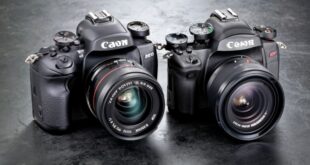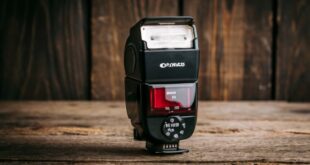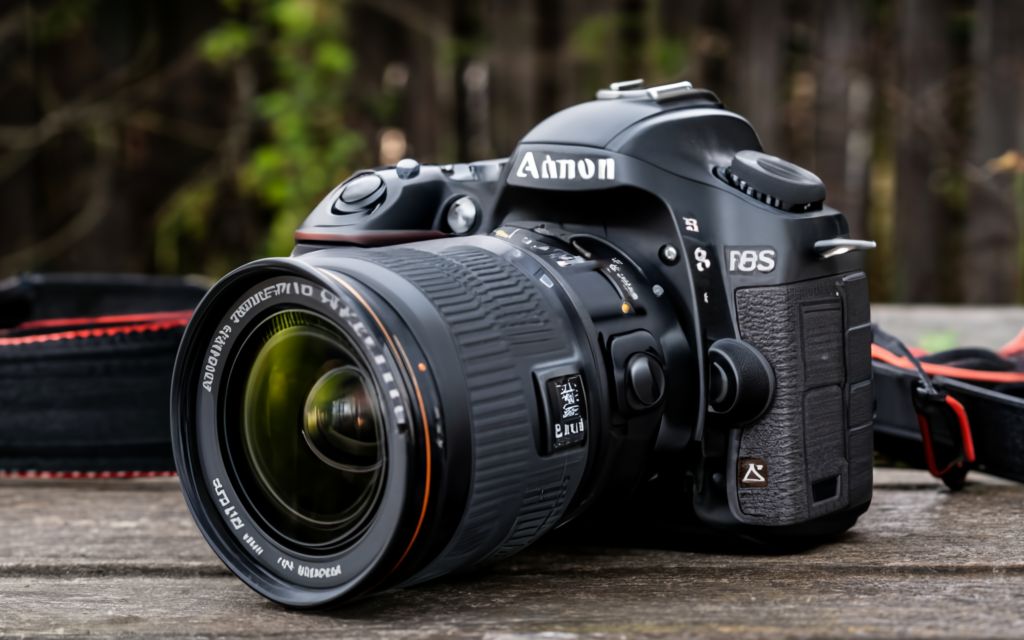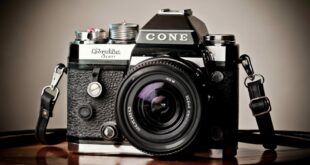An Ultimate Guide for Aspiring Astrophotographers
Hey there, fellow stargazers! Are you ready to capture the beauty of the night sky through stunning astrophotography? Whether you are a beginner looking to dive into the world of astrophotography or a seasoned enthusiast seeking an upgrade, choosing the right DSLR camera is essential to capture those mesmerizing celestial moments. In this comprehensive guide, we present you with the 7 best beginner DSLR cameras for astrophotography that will help you embark on your celestial journey. So, let’s explore the cosmos together and find the perfect camera for your astronomical adventures!
1. Canon EOS Rebel T7i 📷
The Canon EOS Rebel T7i is an excellent entry-level DSLR camera that offers a powerful combination of features perfect for astrophotography enthusiasts. With its 24.2-megapixel APS-C sensor, DIGIC 7 image processor, and ISO range of 100-25600, this camera excels at capturing sharp and low-noise images of the night sky. Its advanced autofocus system with 45 cross-type AF points ensures precise focus, even in challenging low-light conditions.
2. Nikon D5600 📷
The Nikon D5600 is another fantastic option for beginner astrophotographers. Equipped with a 24.2-megapixel DX-format CMOS sensor and EXPEED 4 image processor, this camera delivers impressive image quality and excellent low-light performance. Its ISO range of 100-25600 allows you to capture stunning details of celestial objects, while the 39-point autofocus system guarantees precise focus, even in the darkest nights.
3. Sony Alpha a6000 📷
For those seeking a mirrorless option, the Sony Alpha a6000 is a compact and lightweight camera that packs a punch. With a 24.3-megapixel APS-C sensor, BIONZ X image processor, and ISO range of 100-25600, this camera offers superb image quality and exceptional low-light capabilities. Its fast hybrid autofocus system with 179 phase-detection points ensures accurate focus, enabling you to capture breathtaking astro-images effortlessly.
4. Pentax K-70 📷
The Pentax K-70 is a rugged and weather-sealed DSLR camera that is perfect for astrophotography adventures in challenging conditions. Featuring a 24.2-megapixel APS-C sensor, PRIME MII image processor, and ISO range of 100-102400, this camera excels at capturing stunning details even in extreme low-light settings. Its in-body image stabilization system and astrotracer function make it a valuable tool for capturing sharp and precise images of the night sky.
5. Olympus OM-D E-M10 Mark III 📷
If portability is your priority, the Olympus OM-D E-M10 Mark III offers a compact and lightweight option without compromising on image quality. With a 16.1-megapixel Micro Four Thirds sensor, TruePic VIII image processor, and ISO range of 200-25600, this camera delivers impressive results in capturing the wonders of the night sky. Its 121-point autofocus system ensures accurate focus, allowing you to capture stunning astro-photographs with ease.
6. Fujifilm X-T30 📷
The Fujifilm X-T30 is a mirrorless camera that combines style, performance, and versatility. With a 26.1-megapixel APS-C X-Trans CMOS 4 sensor, X-Processor 4 image processor, and ISO range of 160-12800 (expandable to 80-51200), this camera produces excellent image quality and excels in low-light conditions. Its advanced autofocus system with 425 phase-detection points ensures precise focus, making it a great choice for astrophotography enthusiasts.
7. Panasonic Lumix G7 📷
The Panasonic Lumix G7 is a budget-friendly mirrorless camera that offers impressive features for beginner astrophotographers. With a 16-megapixel Micro Four Thirds sensor, Venus Engine image processor, and ISO range of 200-25600, this camera delivers remarkable image quality even in challenging low-light situations. Its high-speed autofocus system with 49 autofocus points guarantees accurate focus, enabling you to capture stunning astro-images without breaking the bank.
The Complete Comparison Table
| Camera | Megapixels | Image Processor | ISO Range | Autofocus Points |
|---|---|---|---|---|
| Canon EOS Rebel T7i | 24.2 | DIGIC 7 | 100-25600 | 45 |
| Nikon D5600 | 24.2 | EXPEED 4 | 100-25600 | 39 |
| Sony Alpha a6000 | 24.3 | BIONZ X | 100-25600 | 179 |
| Pentax K-70 | 24.2 | PRIME MII | 100-102400 | N/A |
| Olympus OM-D E-M10 Mark III | 16.1 | TruePic VIII | 200-25600 | 121 |
| Fujifilm X-T30 | 26.1 | X-Processor 4 | 160-12800 | 425 |
| Panasonic Lumix G7 | 16 | Venus Engine | 200-25600 | 49 |
Frequently Asked Questions (FAQ)
1. What is astrophotography?
Astrophotography is the art and science of capturing celestial objects, such as stars, planets, galaxies, and nebulae, through photography.
2. Why do I need a DSLR camera for astrophotography?
A DSLR camera allows you to have full control over settings like exposure, ISO, and aperture, which are crucial for capturing stunning astrophotos.
3. Are these cameras suitable for beginners?
Yes, the cameras listed in this article are ideal for beginners as they offer user-friendly features and excellent performance for astrophotography.
4. Which camera is best for capturing star trails?
The Canon EOS Rebel T7i and Nikon D5600 both have features that make them great choices for capturing stunning star trail images.
5. Can I use these cameras for daytime photography as well?
Absolutely! These cameras are versatile and can be used for various types of photography, including daytime shots, landscapes, portraits, and more.
6. Do these cameras require any additional accessories for astrophotography?
While the cameras themselves are capable of capturing astrophotos, certain accessories like a sturdy tripod, remote shutter release, and a fast wide-angle lens can enhance your results.
7. Can I use any DSLR camera for astrophotography?
While most DSLR cameras can be used for astrophotography, cameras with higher ISO capabilities and low noise performance tend to deliver better results in capturing faint details of celestial objects.
8. What is the importance of image stabilization in astrophotography?
Image stabilization helps counteract camera shake, which is especially crucial when using long exposure times to capture the night sky without blurring the stars.
9. Which camera has the highest megapixel count?
The Fujifilm X-T30 boasts the highest megapixel count among the listed cameras with an impressive 26.1-megapixel APS-C X-Trans CMOS 4 sensor.
10. Are these cameras compatible with astrophotography software?
Yes, these cameras are compatible with various astrophotography software, allowing you to further enhance and process your images for stunning results.
11. Can I attach these cameras to a telescope for deep-sky astrophotography?
Yes, most of these cameras can be attached to a telescope using specific adapters or T-rings, enabling you to explore the depths of the universe through deep-sky astrophotography.
12. Are these cameras weather-sealed?
The Pentax K-70 is the only camera among the listed options that is weather-sealed, offering protection against dust and moisture in challenging outdoor conditions.
13. Can I shoot videos with these cameras?
Absolutely! All the listed cameras support video recording, allowing you to capture stunning time-lapse sequences and footage of celestial events like meteor showers.
In Conclusion
Now that you have explored the 7 best beginner DSLR cameras for astrophotography, it’s time to embark on your celestial journey. Remember, each camera has its strengths and weaknesses, so consider your specific requirements and budget before making a decision. Whether you choose the Canon EOS Rebel T7i, Nikon D5600, Sony Alpha a6000, Pentax K-70, Olympus OM-D E-M10 Mark III, Fujifilm X-T30, or the Panasonic Lumix G7, you are guaranteed to capture the wonders of the night sky and create awe-inspiring astrophotos. So, get your gear ready, venture into the darkness, and let the universe unfold through your lens!
Disclaimer
The information provided in this article is based on research and personal opinions. Prices, specifications, and availability of the cameras mentioned may vary over time. Please conduct thorough research and consult professional advice before making any purchasing decisions. The author and publishers of this article shall not be held responsible for any inaccuracies or damages arising from the use of the information provided herein.



